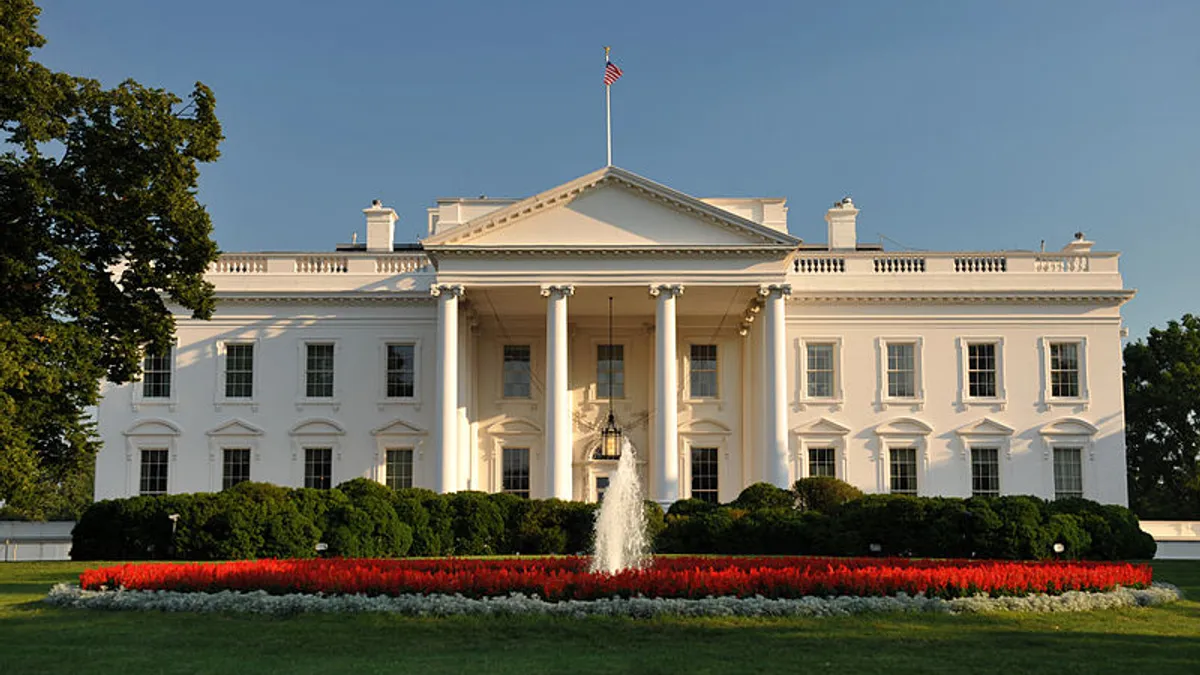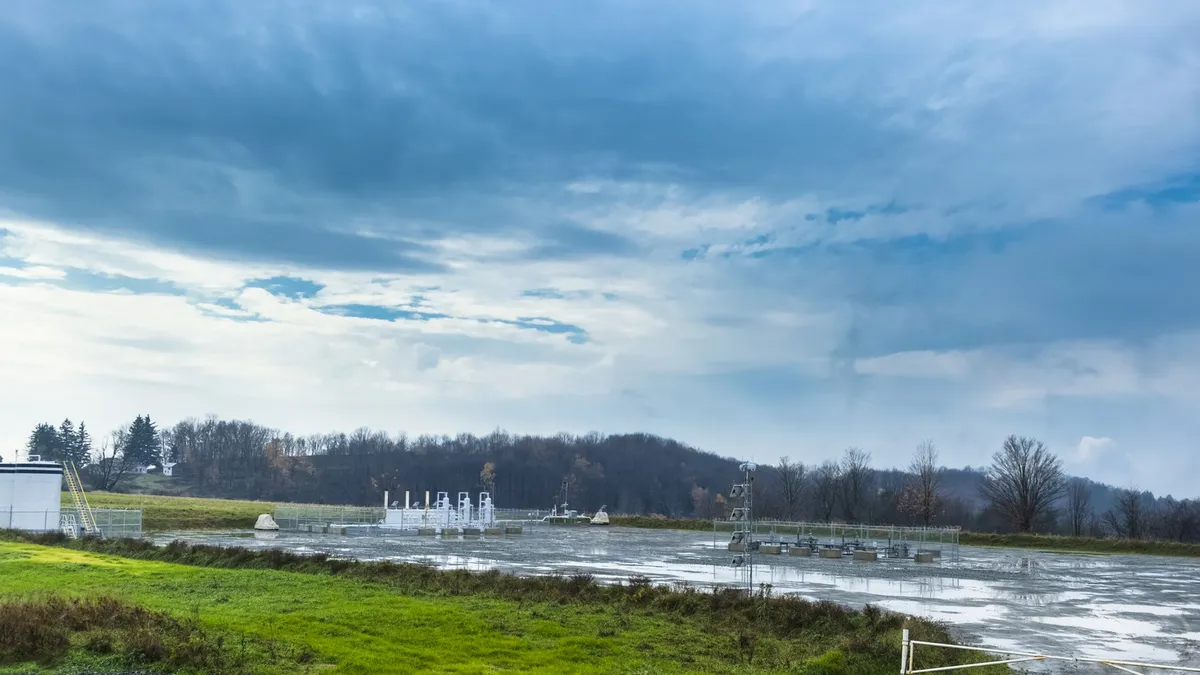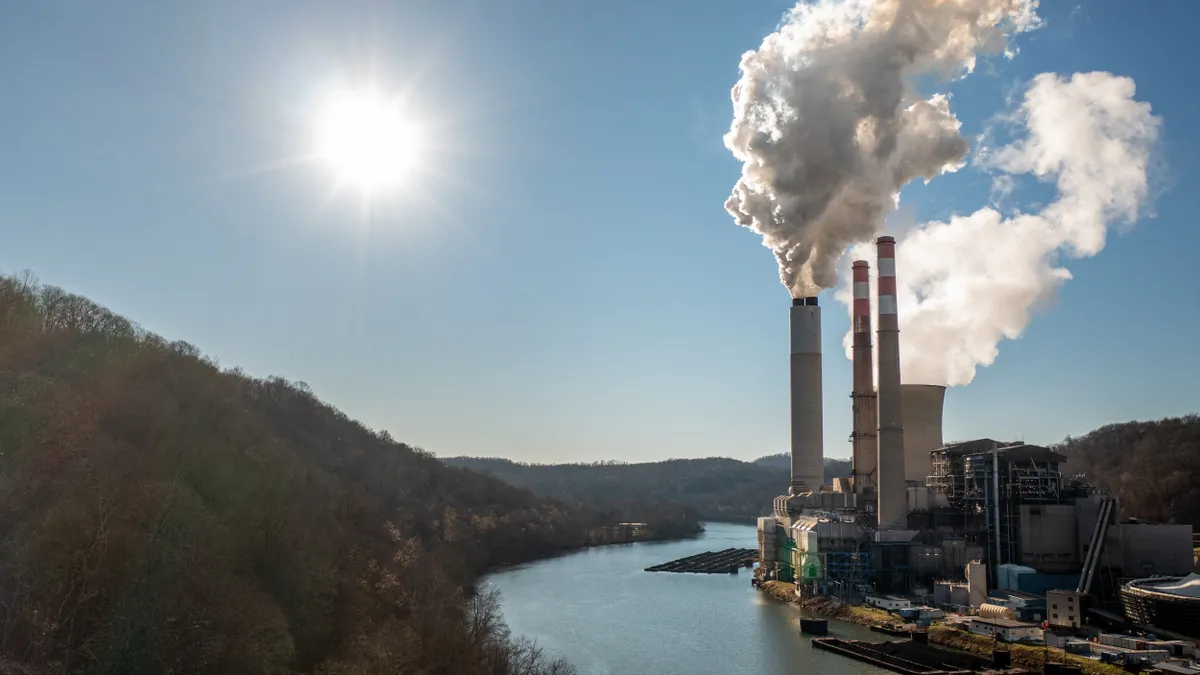Depending on whom you ask, John Podesta is either a hero or a villain to the energy community. The 65-year-old has been chief of staff to President Bill Clinton, chairman of the liberal think tank Center for American Progress, a law professor at Georgetown and is now a counselor to President Obama.

Since returning to the White House, Podesta has been widely credited as the architect of the administration's recent push on climate policy, including its stiff-spine approach to power plant regulations and the recent emissions reduction deal with China.
All that had the crowd at the National Summit on Smart Grid and Climate Change brimming with anticipation when organizers announced Podesta would give the closing keynote on Dec. 3. The announcement behind his speech, attendees would soon learn, was to unveil 16 "climate action champions"—communities from around the country being recognized for their exemplary efforts in combating global warming.
But the announcement likely won't be remembered by most at the conference because, between congratulating the administration for its zeal and its local partners for their innovations, Podesta shared significant insights into the White House's positions and plans for energy. Here's what you need to know about where the Obama administration stands on demand response, the EPA's Clean Power Plan, and international energy negotiations.
The FERC Order 745 overturn: 'A very significant and mistaken decision'
Perhaps most significant for the Smart Grid conference attendees were Podesta's comments relating to FERC Order 745 and the court ruling overturning the order. The order enabled demand response to participate in day-ahead and real-time energy markets when it was capable of balancing supply and demand, and be paid the same locational marginal prices used to value traditional generation. This summer, the U.S. Court of Appeals for the District of Columbia Circuit vacated Order 745, ruling the agency does not have the authority to regulate wholesale energy markets, which it said are the sole jurisdiction of the states.
Podesta minced no words on how the administration views the ruling.
"We think this is a very significant and mistaken decision and we’re hopeful that in time we can see it reversed," he said.
The D.C. Circuit Court recently issued a stay on that decision as FERC prepares for a possible appeal to the Supreme Court. At the conference, an employee of Nest, the smart home company owned by Google, asked Podesta if such an appeal is imminent.
"Ultimately that’s the Solicitor General’s decision," he responded, "but he's getting a lot of input about the importance of Order 745 from colleagues in the White House and EPA and other federal departments."
Late last month, New Mexico Sen. Martin Heinrich (D) proposed a bill he says would help solve the Order 745 controversy by affirming FERC's jurisdiction over demand response in wholesale markets. When asked by Utility Dive, Podesta said the administration has not yet reviewed Heinrich's bill, but that it would support Congressional solutions if the Supreme Court failed to rule in favor of FERC.
"If we can’t prevail in the court system and this decision continues to stand I think we’ll have to go back and look at an appropriate legislative fix," he said.
When asked to clarify if the administration feels demand response should have a place in wholesale energy markets, Podesta balked. He did, however, endorse the idea himself.
"It’s definitely my position," he said to applause from the audience.
The Clean Power Plan: The Obama administration's 'crown jewel'
The EPA's Clean Power Plan is the linchpin of President Obama's climate legacy, a massive regulatory package aimed at reducing carbon emissions nationwide 26% below 2005 levels by 2020 and 30% by 2030. Announced this summer, the deadline for comments on the plan was Dec. 1, and among the 1.6 million submissions were scathing critiques from fossil fuel-reliant utilities and industry.
In his speech, Podesta described the plan as the "crown jewel" of the administration's work to combat climate change. "The energy sector is still the biggest source of carbon pollution in the United States," he said, "and that’s why this June the EPA released the Clean Power Plan, proposing for the first time to limit carbon pollution from existing power plants."
The big question for supporters and opponents of the regulation alike is whether President Obama will hang tough in the face of intense pressure from Congress and the business community. Republican leaders in Congress have already pledged to fight the Clean Power Plan any way they can, including attempts to defund the EPA and delay the rule's implementation.
To those pressures, Podesta had a simple answer: "The President is 100% committed to getting the rule finalized on time."
A reporter from Energy Intelligence pushed Podesta on the point, asking how the administration inspires confidence in international partners that the U.S. will follow through with emissions reductions when there's so much political rancor over the administration's plans back home.
The administration's earlier actions on climate change, such as enhanced vehicle efficiency standards, give it credibility on the international stage, Podesta countered. But more so than that, it's the fact that the U.S. can hit its emissions targets without passing new legislation. All the U.S. needs to hold up its end of the bargain is commitment to the regulation from the president, now and in the future, he explained.
"What I say to [international climate delegations] is that we develop our commitment, our contribution to the international negotiations by doing a deep analysis of what authorities we have under existing law," he said. "We’re building our game plan around the authorities that exist in current law, not in the need to get a major massive, new climate reduction put in place by Congress."
Future climate negotiations: 'I'm betting on the future'
Podesta hinted at new developments in international negotiations, ones that have the potential to change the global landscape on climate policy if they come to fruition. In particular, he said that India—long one of the most resistant nations to greenhouse gas reductions—is moving toward a more sustainable outlook.
"We have a number of clean energy partnerships we’re working with the Indians on," he said. "They’ve been some of the most difficult in some of the international negotiations, including not just the UNFCCC (UN Framework Convention on Climate Change) process but in the Montreal Protocol to try to reduce hydrofluorocarbons, which are very potent greenhouse gases."
According to Podesta, the change in dialogue from Indian officials can be credited to its new Prime Minister, Narendra Modi. "The Indian bureaucracy kind of rolls along, but I think the new prime minister is interested in both trying to boost growth—have that be more broadly shared across the country—and tackle some of the problems they’re going to face around climate change," he said.
With Modi, it seems the U.S. may have found an Indian leader open to rethinking the country's energy system. "I think when [Modi] was the governor of Gujarat was very committed to the solar mission there," Podesta said. "[He] built out a lot of distributed solar and is kind of fascinated with the technology industry and U.S. technology and wants to bring those learnings to bear in developing their economy."
Regardless of whether a landmark deal with India is forthcoming—and Podesta did not say there is one—Podesta thinks action on climate change will soon be much less controversial.
"[U]ltimately we think the politics will swing toward action because communities are having to deal with the real consequences of having a high carbon base energy system," he said. "As they come to grips with the costs associated with that, they're going to find the better part of the economic bargain is moving toward new technology, clean technology and innovation."
"People who bet on the past usually lose," he concluded. "So I’m betting on the future."






















